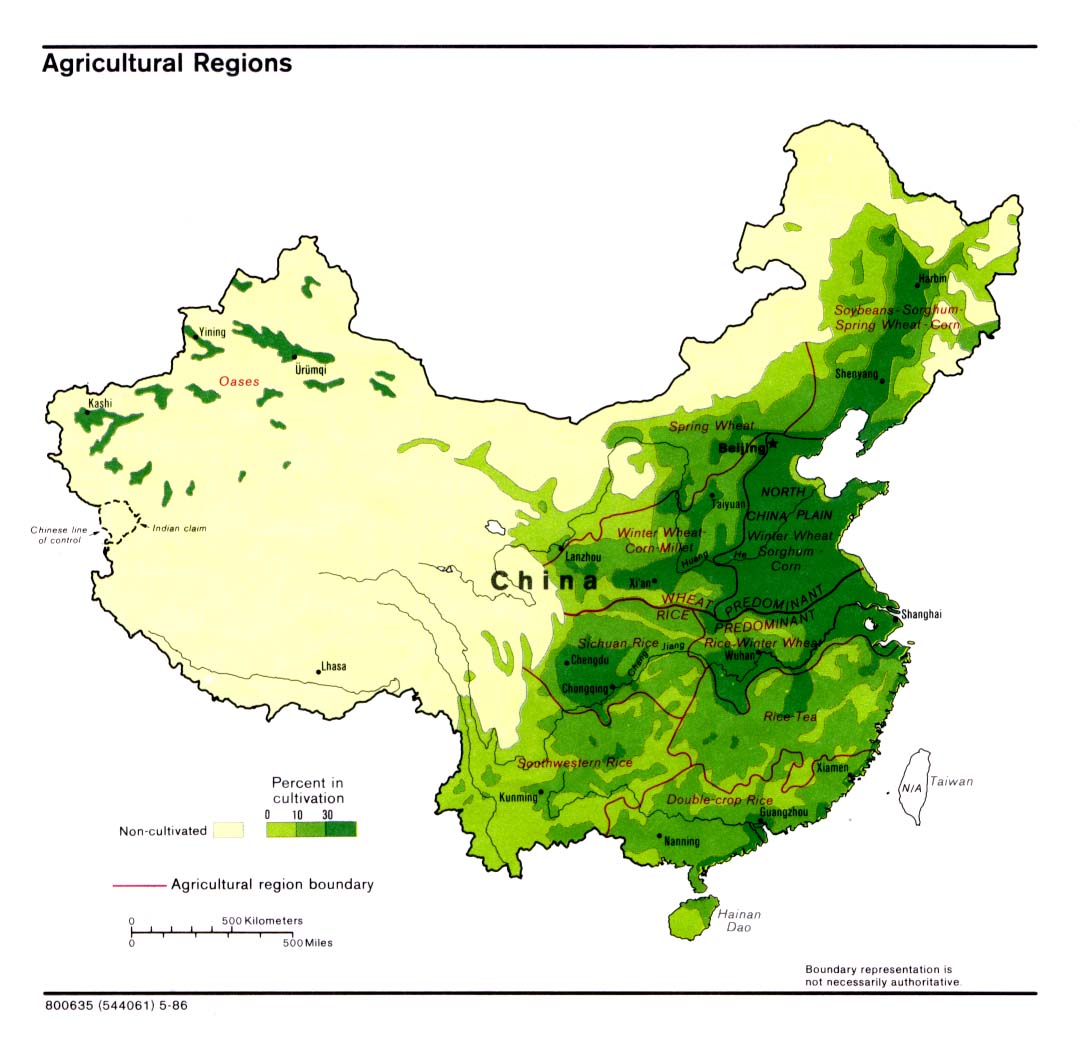
China faces agricultural revolution
By Richard McGregor
The Financial Times
May 8, 2008
China, a small net exporter of rice and largely self sufficient in wheat, has been something of a spectator in the global food crisis of recent months, with Beijing’s role confined to tightening scrutiny of exports to prevent profiteering.

“There is no grain crisis in China at the moment, and there won’t be for some time into the future,” says Cui Xiaoli, a researcher at the development research centre, a think-tank under China’s cabinet.
The country’s inflation hit 11-year highs in recent months, almost entirely because of an increase in food prices, but the government and many economists argue that these rises are a temporary phenomenon.
But the short-term calm of analysts such as Mr Cui belies the long-term pressures on Chinese agriculture, which are on the verge of triggering revolutions in the way China trades and farms its food. Those pressures could even send it offshore in search of arable land.
 The Chinese are getting richer and, like their western counterparts, eating more meat, which in turn is spurring a surge in demand for foodstuffs to feed a growing population of pigs and other livestock.
The Chinese are getting richer and, like their western counterparts, eating more meat, which in turn is spurring a surge in demand for foodstuffs to feed a growing population of pigs and other livestock.With 21 per cent of the world’s population, 9 per cent of its arable land and below-average and poorly distributed water resources, China is already unable to supply enough homegrown animal feed.
Soyabean imports have tripled in the past three to four years and now make up 60 to 70 per cent of local demand, compared with 20 to 30 per cent in 2002.
This year Beijing began restricting the export of corn and its domestic use in making ethanol, to prevent supplies from running out. Eventually, however, China will inevitably have to import large amounts of corn, as well as soyabeans.
Although analysts disagree on the timing of China’s emergence as an importer of all grains, few doubt that Beijing will be forced to modify its longstanding policy of self-sufficiency in basic foodstuffs to meet demand.
“We have already seen what a ‘perfect storm’ of high demand, tight supply and market opening does for other commodity imports and, sooner or later, the same factors will necessarily drive food imports as well,” says Jonathan Anderson, an analyst at UBS.
Any rise in Chinese imports of corn, for example, would immediately have an impact on global prices. With ethanol demand high worldwide, “nobody has any corn to sell” on international markets at the moment, says a Beijing-based agricultural analyst.
But just as important, and largely overlooked, in a debate on food that concentrates on trade is another revolution in Chinese agriculture happening at grassroots level among 700m-odd farmers and their families.
Liu Yonghao, the chairman of the Hope Group, based in Chengdu, in western Sichuan province, made his first $1m, and more, in the 1990s from feeding pigs.
After dabbling in other industries, the entrepreneur says he is returning to his roots to take advantage of the coming upheaval in Chinese agribusiness.
Mr Liu, who along with his brothers topped China’s first rich lists in the late 1990s, says China’s fractured system of tiny farms, each selling its output separately, will inevitably die.
“The gap between the modern industrial and urban economy and the small peasant economy is getting larger and larger. We need to modernise farming, and that means scale,” he says.
“All the recent problems with inflation and food safety relate to our working system. How can we supervise a system with 200m production units that each raises four or five pigs?”
The top three producers of pork in the US supply about 80 per cent of the market. In China, the top three would be lucky to have a combined 10 per cent market share.
Mr Liu is now putting his entrepreneurial energy into building a single, vertically integrated national feed business. If he succeeds, such is the scale of Chinese consumption of pork and other meats that he will inevitably have the largest feed business in the world.
Instead of just selling feed, Mr Liu wants to control the whole process, from breeding stocks to product processing. To do so, he will have to contract, and help finance, potentially millions of farmers.
Quite apart from recent food inflation in China and more recently around the world, Mr Liu says, farm costs at home will continue to rise, in order to compete with urban wages, and will translate into higher prices.
“Fewer farmers now want to raise pigs, and over 70 per cent of middle and younger men have left the countryside,” he says. “When the market is in such an imbalance, prices are sure to go
up. I think they will stay high for a while.”

No comments:
Post a Comment